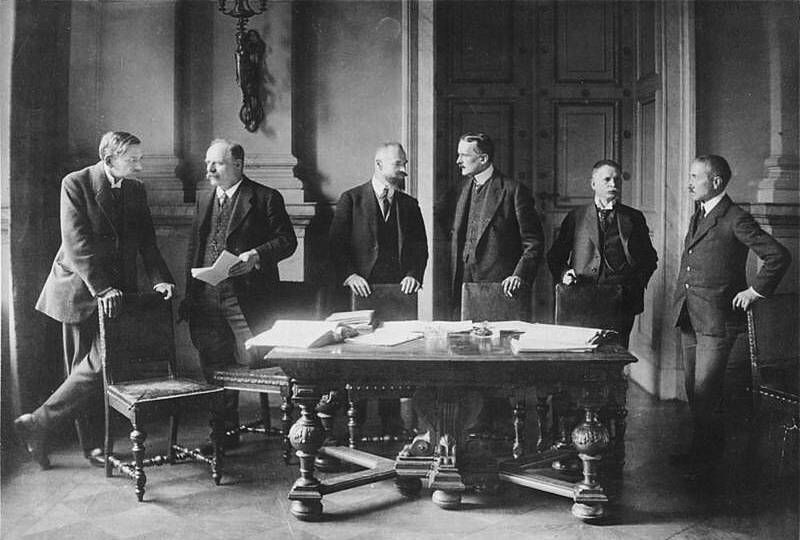Craig Bakay | Nov 04, 2020
Back when we seniors were school children, Nov. 11 was the day we all gathered to remember the veterans, usually with an assembly and a march to the cenotaph where the veterans would solemnly assemble to place wreathes, listen to prayers, a reading of In Flanders Fields and a rendition of The Last Post.
That was long before the Covid-19 pandemic hit and changed everything.
For one thing, large gatherings, even outdoors, aren’t a good idea and students won’t be visiting cenotaphs. In fact, Royal Canadian Legion members have either drastically cut back or cancelled services entirely and there will be no indoor gatherings.
But that doesn’t mean we won’t remember those who will not grow old.
You see, there’s a very good reason we set Nov. 11 aside to remember our Armed Forces.
The world, as we have all known it, is a direct result of what they did, the sacrifices they made. All of the freedoms, opportunities and blessings we enjoy today would likely not be possible had they not answered the call to fight territorial expansion and oppression in the 20th Century.
In 1914, war broke out in Europe as a result of a series of misguided treaties, pacts and agreements between the nations of the time. It was a different time, with Kings and Tsars who were always looking for more territory to rule. They had made agreements to help one another in times of need (war) but really it was as much about power and greed as anything.
When the First World War ended in 1918, the political map of the world had been re-drawn. Officially that war, the War to End All Wars, concluded at the 11th hour of the 11th day of the 11th month. In 1919, King George V of England decreed that day, Nov. 11, be set aside to remember those sacrifices, and honour the fallen.
Many things changed following that war, from the advancement of technology with things like airplanes and machine guns, to the beginnings of the end of empires. Canada, in fact, truly became a nation unto herself and contributed greatly to the victorious side in places most of her soldiers had never heard of with names like the Somme, Vimy Ridge and Passchendaele.
However, the peace won a so dear a cost didn’t last long.
Great Britain, France, the United States and others laid much of the blame for the war on Germany, insisting on punishments and reparations laid out in the Treaty of Versailles.
Those reparations created a Germany that couldn’t function through the Great Depression and led to the rise of a man named Adolf Hitler in the ’30s. At the same time, Benito Mussolini led Italy on a series of land grabs and Japan invaded many of her neighbours, most notably Manchurian China. Humanity, it seemed, had not learned her lesson, still wanting to grab as much territory and power as possible, and prepared to kill in order to get it.
In September of 1939, Hitler’s Germany invaded Poland and the second War to End All Wars, World War II was on.
It lasted until August of 1945 when the U.S.A. dropped atomic bombs on Hiroshima and Nagasaki.
There have been many wars since, Korea and Viet Nam come to mind, not to mention Yugoslavia and the Gulf War, but none have reached the global scale that the two World Wars did.
But one thing every war has in common is that soldiers fight and die. They suffer unthinkable insults to their bodies and minds. They are cold, tired, hurt, lonely.
There are literally no soldiers still alive who fought in World War 1. There are precious few from World War II and even Korean veterans are few and far between. Soldiers from more recent conflicts often suffer from PTSD and can not yet bring themselves to talk about their experiences.
But all soldiers who have seen conflict have had those same experiences.
And that’s what we should remember.
We need to remember that not only did they suffer injuries and indignities, they missed birthdays, and Christmases, and all the things modern people take for granted.
So, while there may not be many formal ceremonies this year, wherever you are, whatever you’re doing, take a minute (or better, two) to remain silent, think about their sacrifices, and say “Thank You” when your silence is done.
More Stories
- No Winner Yet in Catch The Ace But Fundraising Target Met
- South Frontenac Food Bank Opens Second Location in Battersea
- Sharbot Lake Pentecostal Church Anniversary - 1925-2025
- Frontenac Holistic Health Fair - September 20 At Storrington Centre
- Odd Year For Real Estate - But Sales Are Steady Year Over Year
- 193rd Kingston Fall Fair
- Kim Phuc - the Napalm Girl - To Visit Flinton In November
- South Frontenac Council - September 2
- Sticker Shock - EV Charging Station To Cost North Frontenac Township
- 30th Anniversary Verona Car Show

